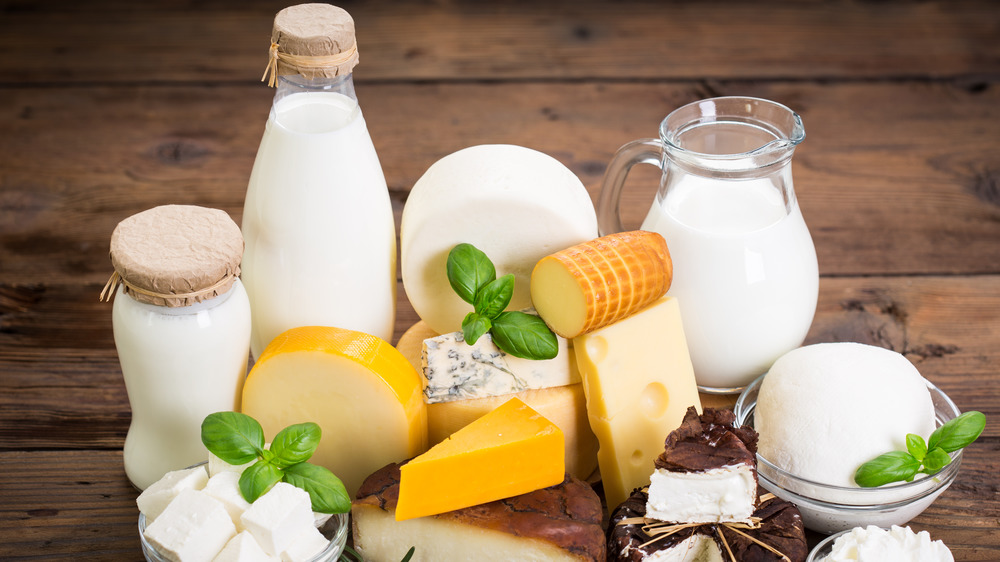How Goat's Milk Is Really Different From Cow's Milk
Various milk varieties pack the grocery store shelves nowadays from cow's milk to oat milk and many in between. But the cow's milk alternative that is the most popularly consumed in the world is actually goat's milk — and although it is a unique choice, goat's milk contains numerous health benefits (via WebMD).
The first difference you may notice about goat's milk is its consistency. It's thicker and creamier than cow's milk and plant milk alternatives like almond or macadamia. This decadent quality could be a win based on your personal taste and could be useful in specific recipes.
For some people, goat's milk can be easier to digest than cow's milk due to a different protein structure and a naturally lower lactose level (via Healthline). However, it is important to note that goat's milk is not entirely lactose-free, so those who are lactose-intolerant should evaluate which milk works best for their specific needs.
Nutritional breakdown of goat's milk
Additional nutrition facts for goat's milk include fatty acids with antibacterial qualities, as well as protein, healthy fats, vitamins and minerals. In fact, goat's milk contains slightly more protein and calcium than cow's milk, and less carbohydrates (via Healthline). There are also prebiotic carbohydrates in goat's milk that are important for maintaining healthy gut bacteria.
On the negative side, goat's milk does contain more calories than cow's milk or plant milk, according to WebMD, so you may need to watch your serving size if you're trying to manage your weight. Even though it is more calorically dense, the fatty acids in goat's milk may help decrease hunger and make you feel fuller, longer.
Although goat's milk isn't as popular of a choice in the United States as it is worldwide, it is one worth considering. Whether you are just looking to try something new or you're making a change based on dietary requirements, it is always recommended to discuss nutritional decisions with a healthcare professional.


